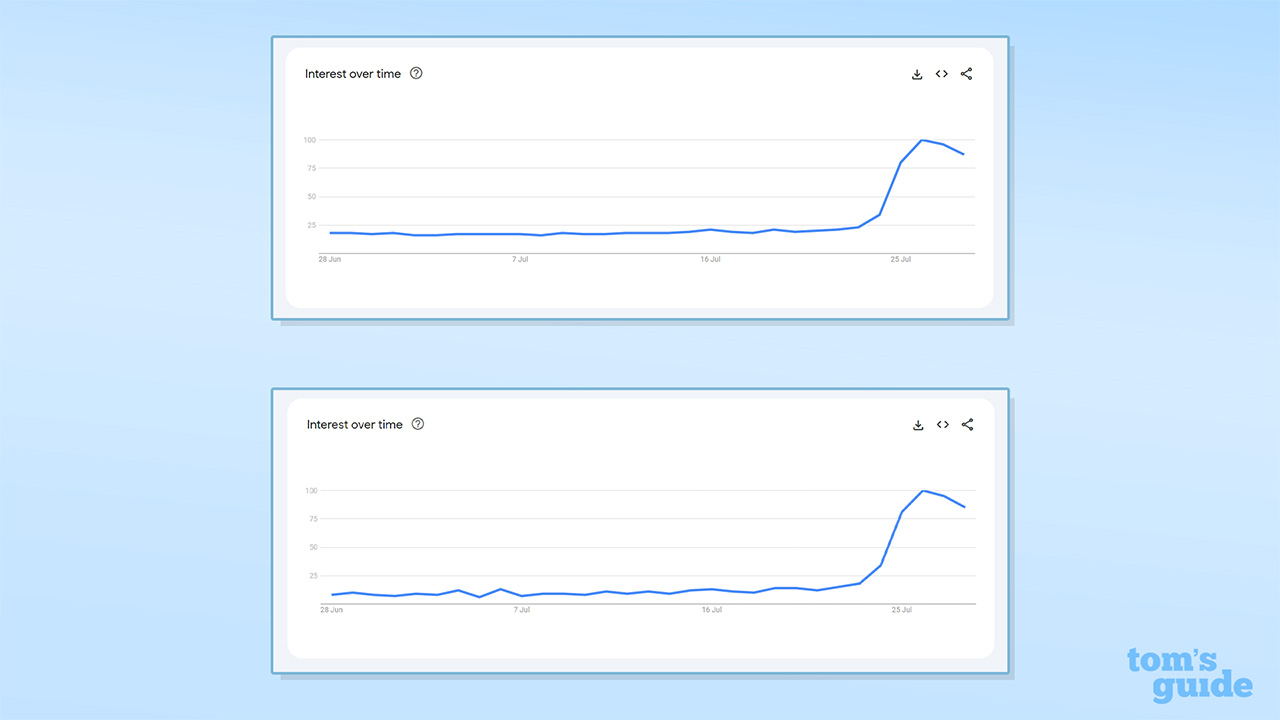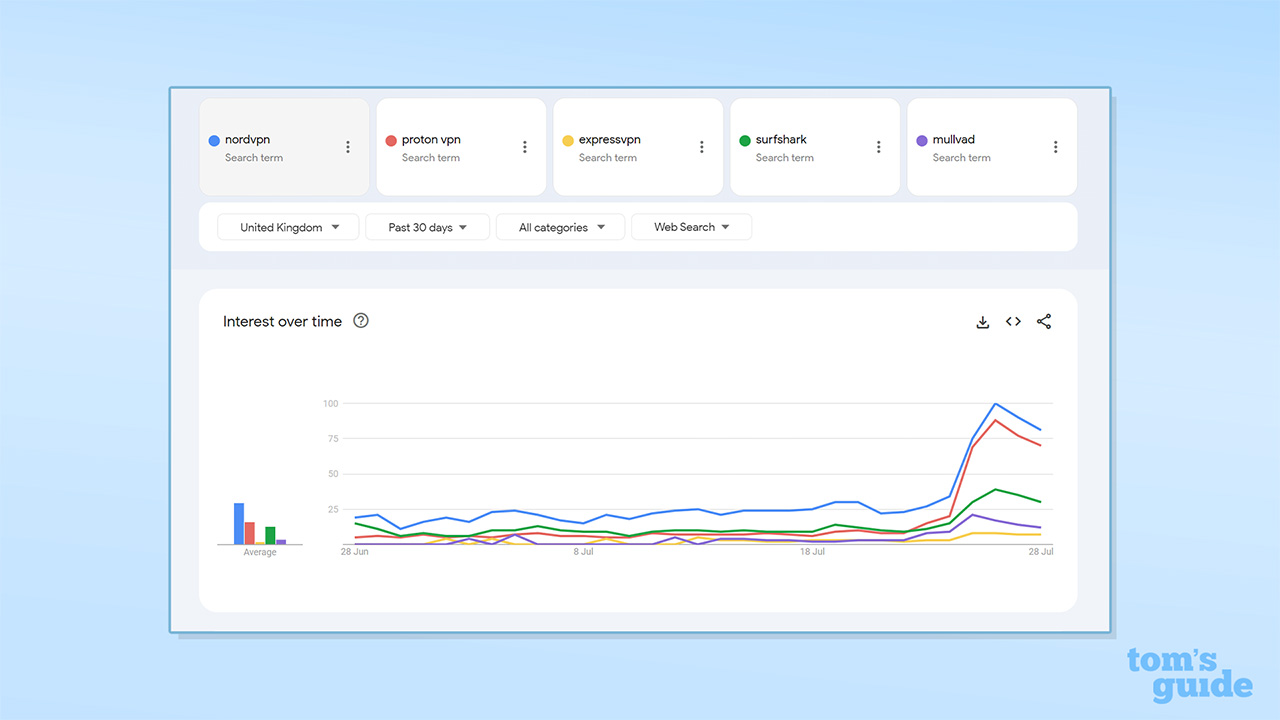Major VPN provider sees a huge spike in sign ups as age verification law comes into effect in the UK
People are not comfortable with handing over sensitive information

The Online Safety Act came into effect in the UK on Friday, 25 July, 2025. The legislation rightly aims to shield children from accessing harmful and explicit content online, but comes with potentially disastrous privacy risks.
Users visiting sites hosting "explicit material" will now have to prove they are over 18 years old. Credit card checks, AI-powered facial age estimation, and uploading photo ID are just some of the ways this can be done.
However, this puts highly sensitive information in the hands of third-party companies, and many users appear to be turning to the best VPNs as a way of avoiding age verification checks.
One of these VPN providers, Proton VPN, saw a huge spike in sign ups to its VPN from those in the UK.
NordVPN: the best VPN overall
NordVPN is our top-rated VPN overall thanks to its great combination of speed, security, and features. There's protection for up to 10 devices, with the option to add on malware protection, a password manager, and encrypted cloud storage.
NordVPN plans start at £2.39 / $3.09 per month (£64.53 / $83.43 up front, pre-tax). All plans come with 3 extra months free and a 30-day money-back guarantee.
A significant and sustained surge
The Proton VPN Observatory reported that Proton VPN sign ups in the UK have increased by 1,400% over the baseline. The spike started on July 25 – the day the age verification law came into effect – and remains high.
"Just a few minutes after the Online Safety Act went into effect last night, Proton VPN signups originating in the UK surged by more than 1,400%," Proton VPN said on X.
"Unlike previous surges, this one is sustained, and is significantly higher than when France lost access to adult content."
Proton VPN has seen a large spike in usage thanks to Proton VPN Free. Its free service is one of the best free VPNs and will encrypt your data and protect your privacy.
Just a few minutes after the Online Safety Act went into effect last night, Proton VPN signups originating in the UK surged by more than 1,400%.Unlike previous surges, this one is sustained, and is significantly higher than when France lost access to adult content. pic.twitter.com/W9R5FQBWKaJuly 25, 2025
Google Trends showed a significant spike in UK search traffic for the search term VPN, with UK VPN and free VPN also seeing increases.

Searches for NordVPN and Proton VPN saw large increases. Surfshark saw a medium increase in searches. ExpressVPN and Mullvad also saw search increases, albeit smaller than the other VPN providers.
This clearly shows that people in the UK don't feel comfortable handing over their personal data for age checks and are looking at ways of bypassing them.

How do VPNs bypass age verification checks?
Right now, VPNs are the tools people are turning to in an attempt to bypass age verification checks.
When you visit a website, the site and your internet service provider (ISP), can see your IP address. If your IP address is a UK one, you will be greeted by age verification checks and account creation requests.
Connecting to a VPN allows you to change this IP address. By doing so, your ISP can't track your internet traffic and the website only sees the VPN IP address.
If you connect to a VPN server in another country, it appears as though your IP address is accessing a website from that location.
OFCOM has discouraged VPN use to avoid age verification checks. The regulator is the brains behind this law and has told platforms they mustn't encourage VPN use.
There is a concern that steps will be taken to block or restrict access to sites when connected to a VPN. This would further impact people's privacy and internet freedoms and set a dangerous precedent.
We test and review VPN services in the context of legal recreational uses. For example: 1. Accessing a service from another country (subject to the terms and conditions of that service). 2. Protecting your online security and strengthening your online privacy when abroad. We do not support or condone the illegal or malicious use of VPN services. Consuming pirated content that is paid-for is neither endorsed nor approved by Future Publishing.

George is a Staff Writer at Tom's Guide, covering VPN, privacy, and cybersecurity news. He is especially interested in digital rights and censorship, and its interplay with politics. Outside of work, George is passionate about music, Star Wars, and Karate.
You must confirm your public display name before commenting
Please logout and then login again, you will then be prompted to enter your display name.
 Club Benefits
Club Benefits






